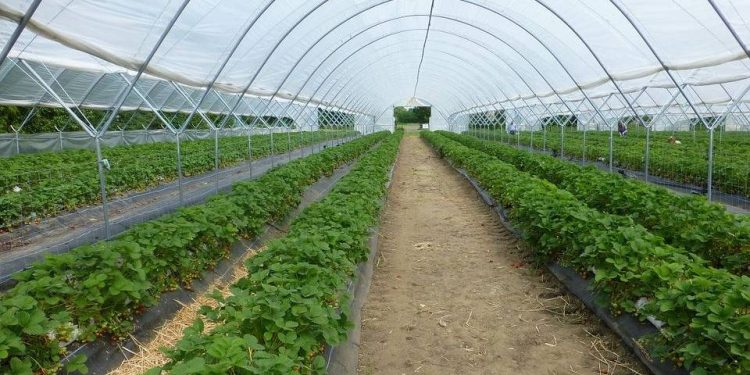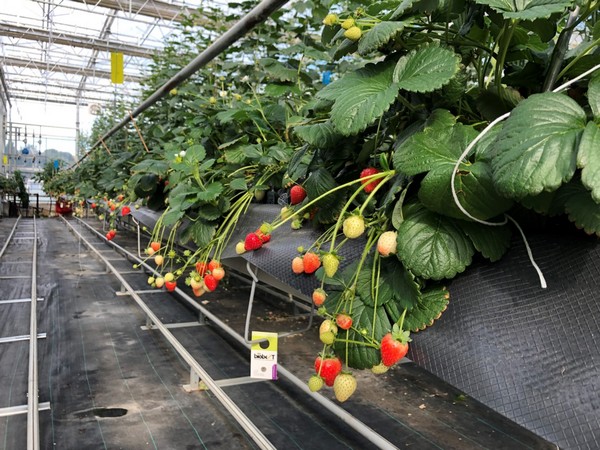Greenhouse with strawberries
The yield of tomatoes increased by 90%, sweet peppers by 140% during the implementation of the UN greenhouse development project in Uzbekistan, on November 1, the Doone news agency reports.
The project “Smart Agriculture — for the future generation” helps dozens of families in rural areas of Uzbekistan and Vietnam to develop greenhouse production in order to produce more food, with less use of pesticides, mineral fertilizers and water, with less labor and in a safer way. The project budget is $3.4 million.
It is emphasized that the concept includes five interrelated aspects: control of climatic conditions, pest and disease control, irrigation, plant nutrition and cultivation methods.
So, instead of outdated methods for insect control, special sticky traps are used.
The project involves rational scientific recommendations and scientifically based solutions, both traditional and modern. These recommendations will help to turn greenhouse farms into enterprises with growing incomes of their owners, will help to employ local residents, will create year-round production of more diverse, affordable and safe food products.
Melvin Medina Navarro, the project’s leading technical specialist, notes that high-tech greenhouses were unproductive for a lot of money, as they did not take into account local specifics, and added: “Inexpensive systems such as these optimized greenhouses allow you to harvest more crops with less resources.”
Water resources were optimized, drip irrigation systems were applied, consisting of electric water pumps, filters, water tanks and drip lines, thanks to which soluble nutrients are applied more efficiently, reaching directly to the root system of plants.
Thanks to the improvements, the yield of tomatoes increased by 90%, sweet peppers by 140%. This result exceeded the initial expectations of a 20% increase in production.
Farmer Matluba Alimbekova, a mother of five children from the Andijan region of Uzbekistan, said that she used to lose up to half of the harvest due to pests and diseases. Now the losses are less than 20%. So planting a new variety of sweet pepper “anetta”, selected for local conditions, collected more than two tons of harvest and earned about $ 1100.
In the future, the project involves market assessment, modernization of laboratories in the field of food safety and professional training of local experts in order to increase the volume and profitability of exports of fresh vegetables and continue the transformation of rural areas using economically accessible and reproducible methods.
This project was developed by the Food and Agriculture Organization of the United Nations (FAO), funded by the Government of the Republic of Korea.
A source: https://rossaprimavera.ru









